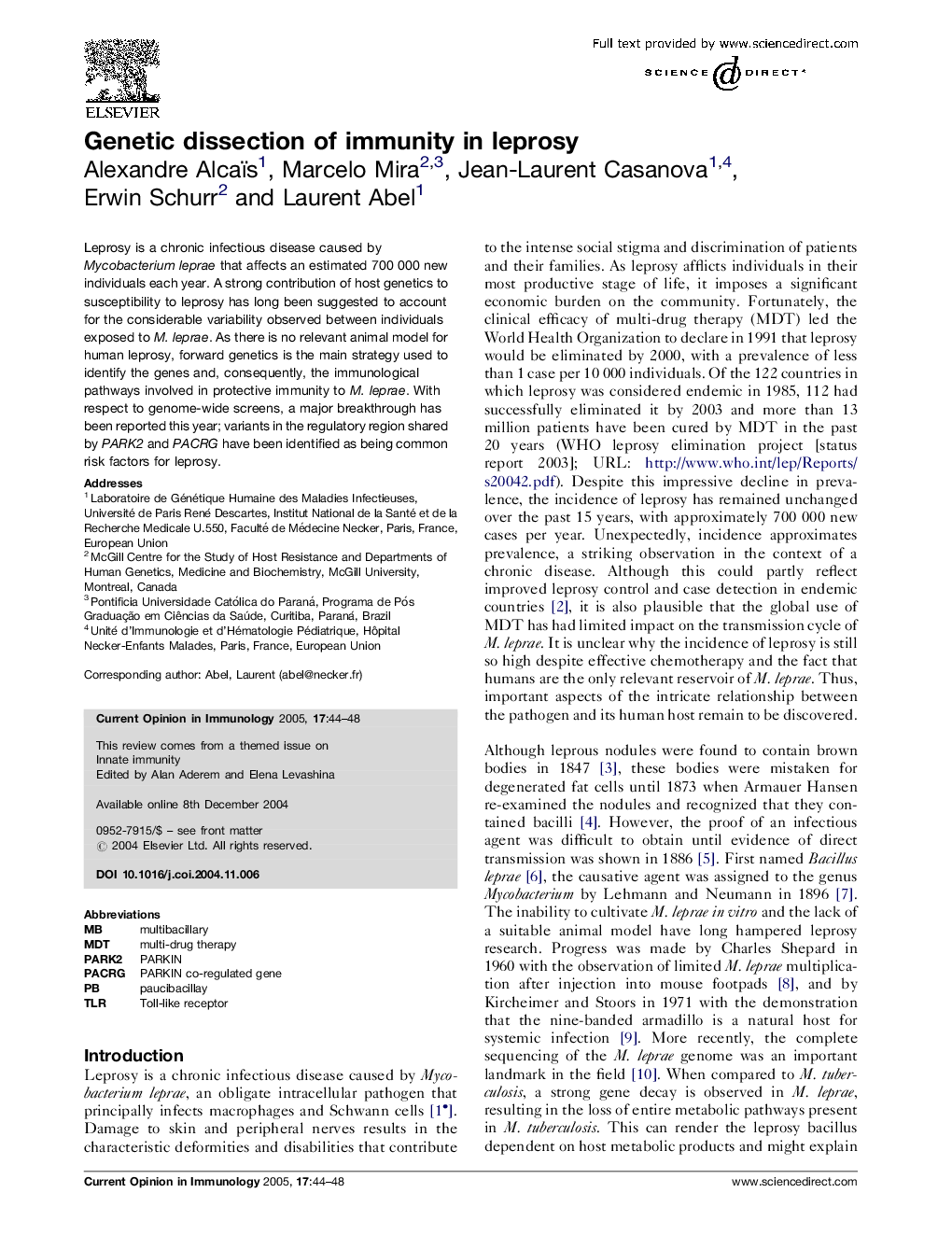| Article ID | Journal | Published Year | Pages | File Type |
|---|---|---|---|---|
| 9262892 | Current Opinion in Immunology | 2005 | 5 Pages |
Abstract
Leprosy is a chronic infectious disease caused by Mycobacterium leprae that affects an estimated 700 000 new individuals each year. A strong contribution of host genetics to susceptibility to leprosy has long been suggested to account for the considerable variability observed between individuals exposed to M. leprae. As there is no relevant animal model for human leprosy, forward genetics is the main strategy used to identify the genes and, consequently, the immunological pathways involved in protective immunity to M. leprae. With respect to genome-wide screens, a major breakthrough has been reported this year; variants in the regulatory region shared by PARK2 and PACRG have been identified as being common risk factors for leprosy.
Related Topics
Life Sciences
Immunology and Microbiology
Immunology
Authors
Alexandre Alcaïs, Marcelo Mira, Jean-Laurent Casanova, Erwin Schurr, Laurent Abel,
